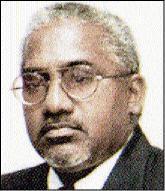Wilberne Persaud, Financial Gleaner Columnist

Persaud
Sugar might still be accurately described as the most politicised commodity ever to be traded in history. And it still is for us, both an economic and social problem and partial solution.But it depends almost entirely on negotiated political arrangements for economic livelihood. Preferential arrangements between and among the former West Indian and North American colonies and Britain have a long and perhaps some would argue, tortuous history. Initially, of course, the preference had nothing to do with the well-being of the colonies or their inhabitants, but essentially that of the mother country.We know what that leads to - wars of all kinds and, of course, independence for the able and latterly the burdensome. But this discourse takes us back so many decades. A little history is sometimes, however, good to recall in trying to grasp even the most current picture.Ever since the momentous decision of the United Kingdom to swallow some of its historic, well-earned pride in the go-it-alone empire/financial centre/lion of both waves and mountains to join the European Economic Community (EEC), the writing has been on the wall for grants and preferential arrangements that tried to 'give back' some of what Britain extracted from its West Indian colonies.
Problem of acceptance
The problem Britain faced two decades after the end of hostilities of the second European war was realisation, or rather, acceptance that the world had changed dramatically the 'special relationship' - UK to United States - would remain important, viable and indispensable, an economically united Europe was on the cards.If that were to happen sans Britain, major problems would ensue. But joining the EEC meant changing the arrangements that held firm over the British Commonwealth.After major and protracted discourse and negotiation a solution emerged - cooperation and development assistance between the African Caribbean and Pacific (ACP) group in conjunction with the EEC and latterly the European Union.The arrangement was christened with modern nomenclature in the acronym ACP/EEC arrangements. It did not speak in terms of the Commonwealth or the 'West Indian' colonies. Names, after all, do matter.But today, these arrangements are under fire. Even such a description appears too mild. A better description is to admit that these arrangements are being nuked. Globalisation, intense manoeuvring for control of the world's resources by international corporate capital partly in the form of the World Trade Organization (WTO) and various bilateral arrangements that seek to prop up shaky regimes whose peoples may create problems are the solutions of the day.And the Caribbean countries, Caricom, have responded to these developments with little change in behaviour. The new Economic Partnership Agreement (EPA) and other arrangements in the pipeline highlight these problems.
Doing their own thing
Norman Girvan, in a perceptive piece on some elements of these issues notes that: "As far back as 1989, the Caricom Heads of Government in the Grand Anse Declaration, agreed to establish joint diplomatic representation in foreign capitals. This decision, it can be said, is 'more honoured in the breach than in the observance' even the largest Caricom country clearly lacks the financial and human resource capacity to maintain an effective - as distinct from a nominal - presence in the major capitals, each prefers to 'do its own thing' (the OECS being a partial exemption to this). Thus, Jamaica has its own separate representation in Beijing, Trinidad and Tobago in Pretoria, and Guyana in Brasilia."This is a problem that we are apparently not ever going to be able to solve. It goes way back to: 'Federation boils down to simply this: is dog-eat-dog and survival of the fittest." That was Sparrow on the break-up of the West Indies Federation.Rational, logical thought, theoretical economics, game theory and almost every kind of procedure known to man and used to inform and govern collective behaviour suggest otherwise. But put it this way: If a victorious political party must repay favours, campaign financing, et cetera, as well as provide jobs for long committed and contributing members, how in the world can we have one Caricom diplomatic representative to the UK or USA?The lobbying enterprise in Washington has been so unkindly described as a process of 'legalised corruption'. The practice of changing key officials as presidents change has also been criticised.But could it be that here is a system that recognises human frailty and makes the best of it? Should we seek solutions that expressly admit to our difficulties and proceed to go about solving them, given our resources, rationally?We might find some variant or combination of measures that can work for us. But what a thing to hope for!wilbe65@yahoo.com

